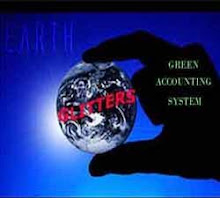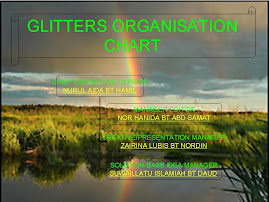AN INTRODUCTION TO THE ISSUES
At a practical level, the two most obvious reasons for accountants to be involved in environmental. Firstly, environmental issues are business issues. This article shows clearly that environmental issues, in terms of legislation and market changes, have implications for business in those areas which directly concern accountants of all shapes and sizes. From straightforward cost and profit and loss issues, to competitive advantage and cost efficiency to the more complex issues in assets values, contingent liabilities and environmental risk. Most accountants will have a role to play.
Secondly, environmental issues have considerable implications for ‘audit’ in all its guises. In addition to the environmental implications for the statutory audit there are the growing demands of ‘environmental audit’ over which there is much confusion. Environmental audits are put firmly in their place within a context of environmental management.
As a conclusion, accountants are not seen as a major source of innovation in the organization generally and in organizational response to the environment in particular. Certainly, whilst accountants do see themselves as potentially innovative, it is an innovation constrained within the existing financial information system. That there has been little seriously innovative environmental accounting to date is consistent with this. This will, however, have to change but in the short to medium term it seems most likely that the environmental initiative will tend to come from elsewhere in the organization.
Environmental response is the type of issue that must not be quickly delegated to some remote, nonessential part of the organization and forgotten about. It must be central to the organizations whole programmed. The environmental crisis itself arises out of the basic failure of organizational structures, business ethics, economic frameworks and accounting systems to recognize ‘natural’. All life obviously derives from and is part of the ‘natural environment’, but until environment is certainly enmeshed with the organization, Western industrial systems will continue to treat it as though it were something which is irrelevant at best and distinct from life at worst and thereby destroy it. Just as health, safety and respect for one’s employees have become accepted even essential perquisites for responsible organizations, so too must environmental concern be considered an essential element of responsible management.
There can be no single, ideal way in which any organization can begin the process of developing its organizational sensitivity. Each may choose a different route some starting with an environmental policy, some with an environmental audit and others with environmental reporting.
ENVIRONMENTAL POLICY: ADOPTION, ESTABLISHMENT AND IMPLEMENTATION
To fulfill the green accounting system in the organization, the organization must have their own an environmental policy. Environmental policy is going to be the principal signal to the internal and external stakeholders of the seriousness of the organization’s intentions with respect to the environment. There are two main routes when we’re decided to develop an environmental policy, first is development of an organization-specific and the adoption of one of the publicly established ‘charters’.
The main purpose in adopting an environmental policy is as a guide to future action. It therefore needs to be informed by reliable data on the organization’s environmental interactions and consists of commitments which are as specific as possible and be supported by as many mechanisms for turning the policy into specific targets as can be established.
Moreover an environmental charter is a public document with a number of primary purposes. It consists of a number of guiding principles covering area of corporate planning, activity and control where environmental aspects should be incorporated. It closely related with management accounting and control system that we can put it together in order to implement the green accounting system in the organization. In order to implement it in the organization, they must have their own charter so that any activities in regards of corporate social responsibility will be control and not beyond of their indicator that stated in the charter.
The organization should take into considerations the adopting of The Valdev Principles while the green accounting system is in place. The principles are consists of, protection of biosphere, sustainable use of natural resources, reduction and disposal of waste, wise use of energy, risk reduction, marketing of safe products and services, damage compensation, disclosure, environmental directors and managers and assessment and annual audit. All these principles are the most important to developing an environmental policy so that it will comply with law and regulations that may have in order to oblige to the society.
Once the organization has developed their environmental policy, the implementation and monitoring are really important steps sequentially to ensure the policy is enforced and successful. To implementing the policy, the organization should take these as their guidance to develop it. It consists of; prioritize the goals of the policy and the goals of the organization in terms of the policy. Identify interactions throughout the organization and decide how to harmonize them. Turn the goals into specific targets. Give the targets completion dates. Assign responsibility, monitor performance and feedback and reward. In monitoring systems which is including audit and review, the organizations should performed against legal standards, consent levels, forthcoming law, organizational ethical policy, environmental policies and all areas of environmental policy. Besides, they should think of the analysis of employee suggestion boxes. Review of regular organizational data on wastes, emissions, leaks and accidents.
ACCOUNTING AND THE CONTROL OF THE ENERGY COST
This paper discusses on the issues of energy and its relationship to the environment, and ultimately its links to performance measurement and management in accounting. The discussion of the paper takes its direction towards the accord that had been acknowledged that being environmentally sensitive that can generate financial benefits. The author of the paper then discusses on the need to emphasize on good management practices in order to minimize waste of all kinds and ultimately, that action could lead to minimum energy cost options.
In general, the environmental issues associated with energy are complex and critical. The main issues are in relation to the use and consumption of non renewable sources. The author then extends his argument in saying that extraction not only depletes scarce resources and disrupts ecosystems but itself uses energy in the process. The phenomena of these processes and consumption depletion of the non renewable energies are severe in European countries as compared to other non European countries. For instance, the per capita consumption of energy in the developed countries is approximately seven times higher than in the lesser developed countries. The paradox of the whole scenario is that the majority of the energy utilized in these developed countries is wasted.
As the weather changes, so does the perception by businesses in order to take into consideration the above issues and translate them into meaningful interpretation of the business and accounting purposes. In the
The author also highlights the examples of companies that have made significant savings by employing energy saving initiatives that include companies such as Sainsbury’s and British Gas from the
A natural progression in measuring the entire process is to allow the accountants to contribute to the developing environmental sensitivity of organizations in accounting for energy. There are no hard and fast rules for accounting for energy, but the article has outline that there are at least ten initial steps in accounting for energy costs. These steps, along with solid mechanisms for ensuring that energy costs are actively controlled, they could bind the entire process of accounting for energy to performance measurement and management system of the organization into a more meaningful subject that could lead to sustainable effort into the unforeseeable future.
ACCOUNTING AND CONTROLLING FOR THE COSTS OF WASTE, PACKAGING AND RECYCLING
The management and control of waste from one of the two main areas in which environmental and financial/ economic consideration are often seen to be similar. For this reason, it is one of the major taken. The financial benefits to be derived from an at least ‘light green’ management of waste ca be immediate and obvious, which makes it an aspect of organization/ environment interaction which accountants can play and are playing a considerable role.
The concept of ‘waste’ has two, very distinct dimension. We can think of these as ‘wastefulness’ and ‘pollution’. The human/ economic dimension relates to using more than we need the by products of production, by products in use, the disposal of the by products and what to do with the products when humans have stopped using them. The conservation dimension relates to the effect of this process on the capacity of the biosphere to continue functioning.
In a literal sense, the management of waste, packaging and recycling should automatically follow from good environmental management linked with an active and reasonable approach to the management of the business. However, experience suggests that careful management of waste does not follow so naturally and certainly the speed of change in the regulation and the economics of waste, packaging and recycling means that no organization can afford to ignore it.
The supply and purchase of funds are influenced by the developing environmental agenda. The implications for companies and other organizations are considerable. There are not only problems of (inter alia) an increasingly restrictive short-termism and difficulties in attracting funds for environmental initiatives but such funds as can be attracted are more and more likely to have demanding environmental conditions attached.
In addition to meet increasing environmental standard and struggling to persuade financiers are being faced with two further. First, there is the purely commercial pressure from banks and insurers concerned about their own exposures. Second, there is a growing among investors of the importance of ethical and environmental matters. It is a development led by the major green investment funds. The whole pattern of funding to and from enterprise is the process of changing.
The serious difficulties a number of established businesses were having in persuading banks to grant loan finance. It is due not to doubts about the core business or normal business exposure risk but to environmental considerations. The problems from banks’ point of view have three elements. First of all, the bank is lending to find itself involved in serious environmental problems which will increase its costs and make its servicing of the loan problematic. Second, the possibilities of environmental liabilities attaching to that property if the business goes into liquidation. Third, ‘polluter pays’ principle require the bank to take part in any business clean-up costs even the businesses are nit in liquidation.
As a form of risk, environmentally related liabilities are extremely far-reaching, potentially very expensive and largely unpredictable. But companies and banks turning to their insurance companies are facing problems. The major problems seem to centre around the insurers’ unwillingness or inability to cover all possible risks. The developed economies are already facing situations in the environmental and profit criteria appear to be in conflict. Environmental management requires a proactive and creative approach to investment. This is possible only when the providers of the fund are willing to recognize other, non-financial criteria, loan, or whatever.
The ethical/environmental funds operate both ‘positive’ and ‘negative’ criteria in selecting companies in which to invest. The negative criteria are easier to operate and involved avoiding companies active in certain sectors or involved with countries, incidents or activities selected by either the investor or the fund managers as inappropriate. Positive criteria raise more difficult problems, not least because information is difficult to obtain.
In conclusion, the providers of funds exercise a critical amount of power over organization. Whilst much of this can be restrictive upon any management attempting to develop an organization’s environmental sensitivity. It beyond the lightest tinge of green, there are signs of environmentally positive actions flowing both from the self-interest of banks and insurance companies and from the rather more altruistic motivations of the ethical and environmental investor.
ACCOUNTING AND REPORTING FOR A FUTURE
From this article, in particular, we focus upon sustainability as the key concept guiding mankind’s future interactions with the environment. The pursuit of sustainability represents an awesome challenge to humanity. Whilst the basic idea of sustainability is self-evidently good sense and one with which few would wish to disagree, identifying and assessing the detail of the concept has proved immensely difficult.
Ultimately, reporting for sustainability must consist of statements about the extent to which corporations are reducing or increasing the option available to future generations. This is a profoundly complex, if not impossible. However, there do appear to be three major ways in which any organization could try to approximate this in a fairly practicable and systematic way which would potentially lend itself to reporting. These are inventory approach, sustainable cost approach and resource flow through input-output approach.
The essence of environment accountability and transparency is that environment matters are too complex and crucial to be left entirely in the already overburdened hand of corporations. Furthermore, it seems difficult to deny that those who are affected by the environmental actions of business have a right to information about those actions whether one is thinking in terms of democratic right or concerned to help market function after all, neither democracy nor markets can function usefully without information.








.jpg)
.jpg)
.jpg)
.jpg)


No comments:
Post a Comment